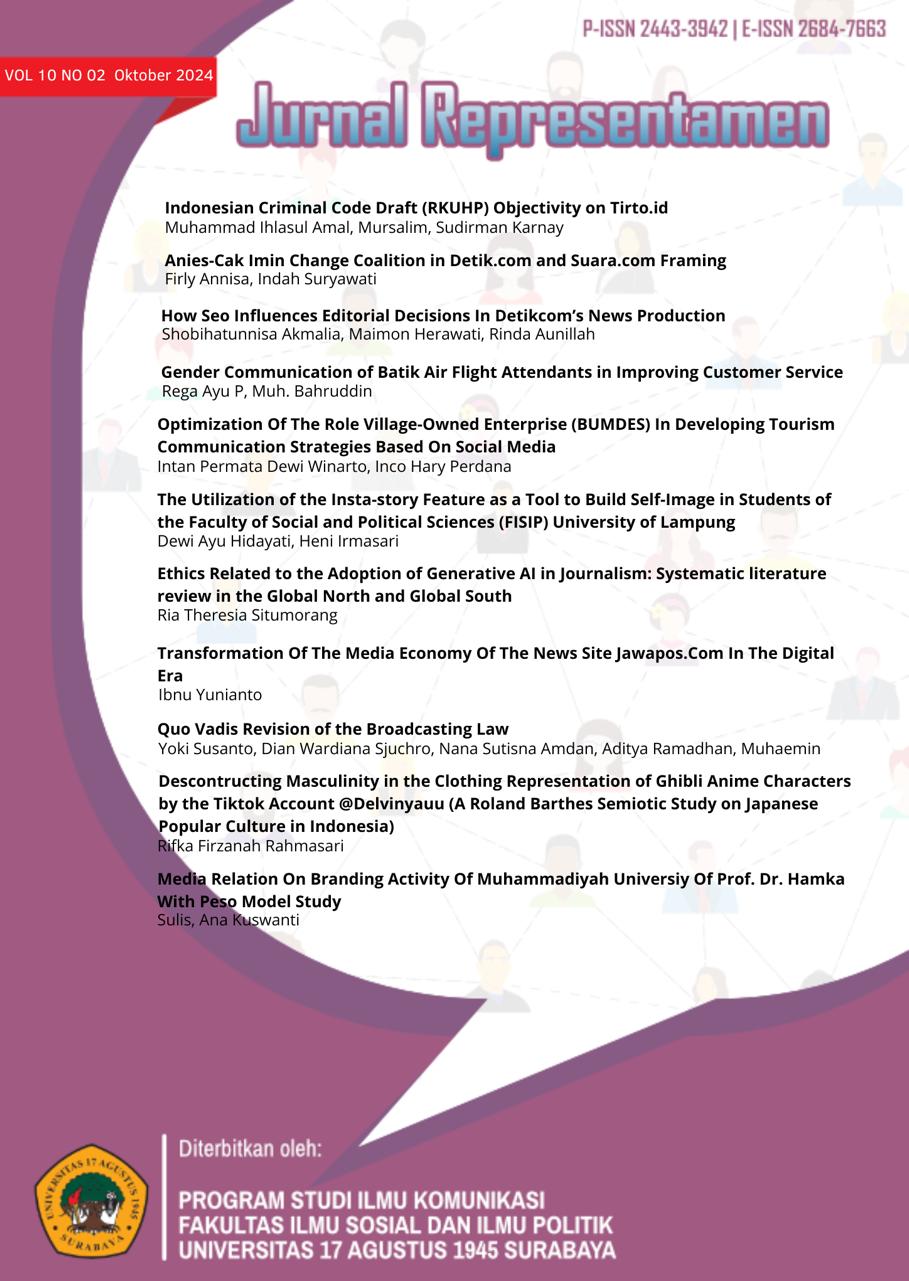Ethics Related to the Adoption of Generative AI in Journalism
Systematic literature review in the Global North and Global South
DOI:
https://doi.org/10.30996/representamen.v10i02.10464Abstract
Media and content companies around the world are increasingly adopting generative AI technologies in text and image production to improve work efficiency. This article seeks to analyze the impact of ethical concerns that often arise in research on journalism and its relation to generative AI and identify areas that require more attention from a human-machine communication perspective. Based on the analysis of 14 articles, commentary and essay published in academic journals from 2022 to June 2024, the following key themes were identified: 1) Bias; 2) Misinformation; 3) Copyright; 4) Accuracy; and, 5) Credibility as well as other matters such as 6) Media autonomy; also 7) Replaceable human jobs. There were very few publications related to transparency. In addition, the majority of publications identified in previous studies lack diversity in sample selection as they are concentrated on the global north. There is a need for more inclusive practices in the global south with a social and cultural approach. This will help close the research gap and developers of generative AI-based technologies can consider diverse data sources when designing tools to minimize long-term risks.
Downloads
Downloads
Published
Issue
Section
License
Authors whose manuscript is published will approve the following provisions:
The right to publication of all journal material published on the jurnal representamen website is held by the editorial board with the author's knowledge (moral rights remain the property of the author).
The formal legal provisions for access to digital articles of this electronic journal are subject to the terms of the Creative Commons Attribution-ShareAlike (CC BY-SA) license, which means Jurnal Representamen reserves the right to store, modify the format, administer in database, maintain and publish articles without requesting permission from the Author as long as it keeps the Author's name as the owner of Copyright.
Printed and electronic published manuscripts are open access for educational, research and library purposes. In addition to these objectives, the editorial board shall not be liable for violations of copyright law.











